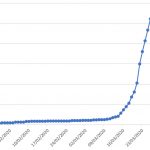By failing to attend to the source, disinformation can be stored along with information, making it difficult to distinguish the good penny from the bad penny.



By failing to attend to the source, disinformation can be stored along with information, making it difficult to distinguish the good penny from the bad penny.

SSIT members have a history of getting into “good trouble” as they encourage IEEE toward more humanistic stances on ethics, transparency, sustainability, and global equity.

Functional democratic governance has five fundamental preconditions: civic dignity, confluent values, epistemic diversity, accessible education, and legitimate consent.

How can tech organizations of whatever size and industry build more ethical systems? IEEE 7000™ aims to provide organizations with “ethical specs.”

This special issue published in cooperation with IEEE Transactions on Technology and Society (December 2021) is dedicated to examining the governance of artificial intelligence (AI) through soft law. These programs are characterized by the creation of substantive expectations that are not directly enforced by government.

IEEE 2089™-2021, Standard for an Age-Appropriate Digital Services Framework Based on the 5Rights Principles for Children is the first in a family of standards that establishes a set of processes that helps enable organizations to make their services age-appropriate.

If it were possible to formulate laws involving vague predicates and adjudicate them, what would be the implications of such minimalist formulations for soft laws and even for “hard” laws? The possible implications are threefold: 1) does possibility imply desirability; 2) does possibility imply infallibility; and 3) does possibility imply accountability? The answer advanced here, to all three questions, is “no.”

The negative effects of technological innovations can be foreseen, and more importantly, mitigated through more intentional and skillful engineering. Systematic efforts to address these impacts remain peripheral to the engineering profession. The Canada-based Engineering Change Laboratory has identified a set of behaviors that take a value sensitive approach to the practice and culture of engineering.

Katina Michael has been recognized with a 2021 IEEE Standards Association (IEEE SA) Managing Director’s Special Recognition Award “in appreciation of her leadership in advancing age-appropriate design standardization” in the creation of IEEE Standard 2089.

The promise of 4IR is overblown and its perils are underappreciated. There are compelling reasons to reject—and even actively oppose—the 4IR narrative.

Although much research has been devoted to the effects of autonomous vehicles (AVs) on urban areas, little work has been dedicated to the potential impacts of AVs in rural areas, especially related to feasibility and accessibility [1]. How will automated vehicles impact rural communities?

Lethal autonomous weapon systems have the potential to radically transform warfare. Can open source technology help regulate their development?

The technologies being investigated may hold a promising future for the elderly population, allowing people to continue to live inside their homes while aging.

Hackathons and other well-intentioned efforts to solve social problems using technology must also include the meaningful participation of affected individuals… Read More

IEEE Global Humanitarian Technology Conference (GHTC) 2021 is an annual flagship international conference sharing practical technology-enabled solutions supporting achievement of the United… Read More

The IEEE Digital Privacy Workshop takes place as a virtual event from 07 – 08 October 2021. This two day workshop… Read More

Critical thinking is a mainstream part of some educational traditions, but is it universally valued? Only some truths have an objective basis and many others depend on the eye of the beholder. No real society values everyone equally.

Register Today for ISTAS 2021!

The fiercest public health crisis in a century has elicited cooperative courage and sacrifice across the globe. At the same time, the COVID-19 pandemic is producing severe social, economic, political, and ethical divides, within and between nations. It is reshaping how we engage with each other and how we see the world around us. It urges us to think more deeply on many challenging issues—some of which can perhaps offer opportunities if we handle them well. The transcripts that follow speak to the potency and promise of dialogue. They record two in a continuing series of “COVID-19 In Conversations” hosted by Oxford Prospects and Global Development Institute.

Tuesday 5.30 – 7.00 p.m. (EDT), 2.30 pm – 4.00 pm (MST), Wednesday 7.30 am – 9.00 am (AEST); ;– “IP Location Services and Automated Biometric Recognition”